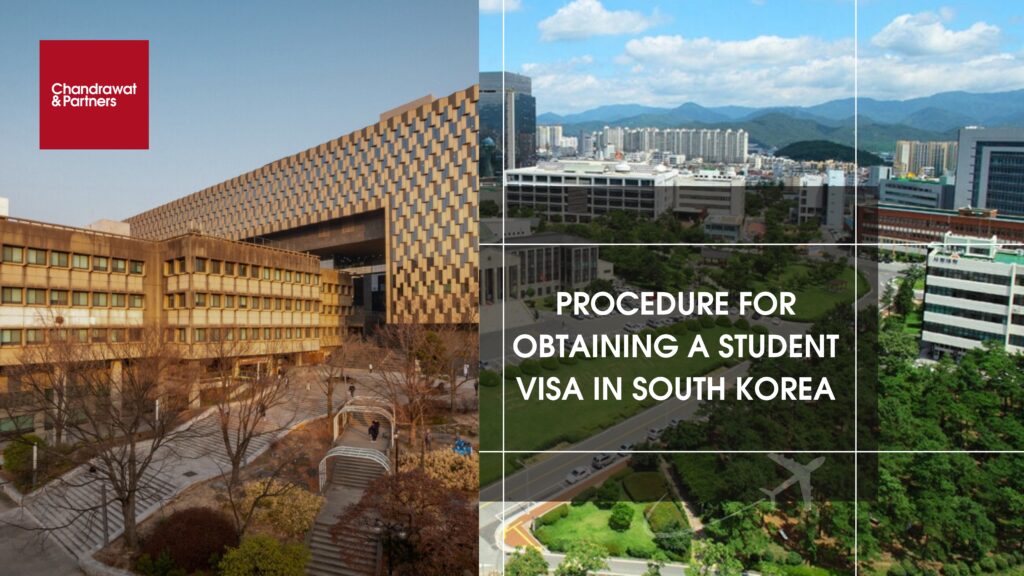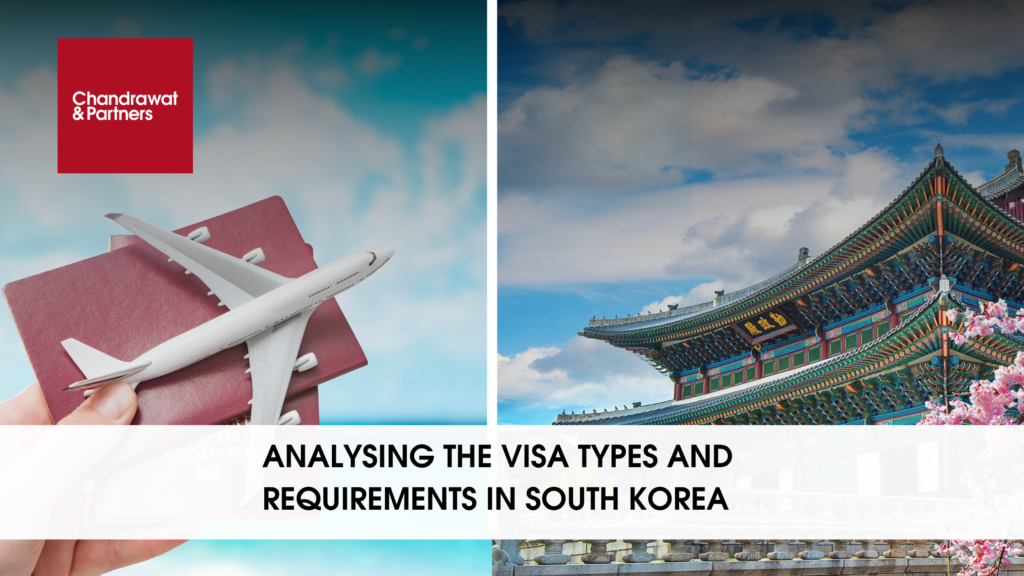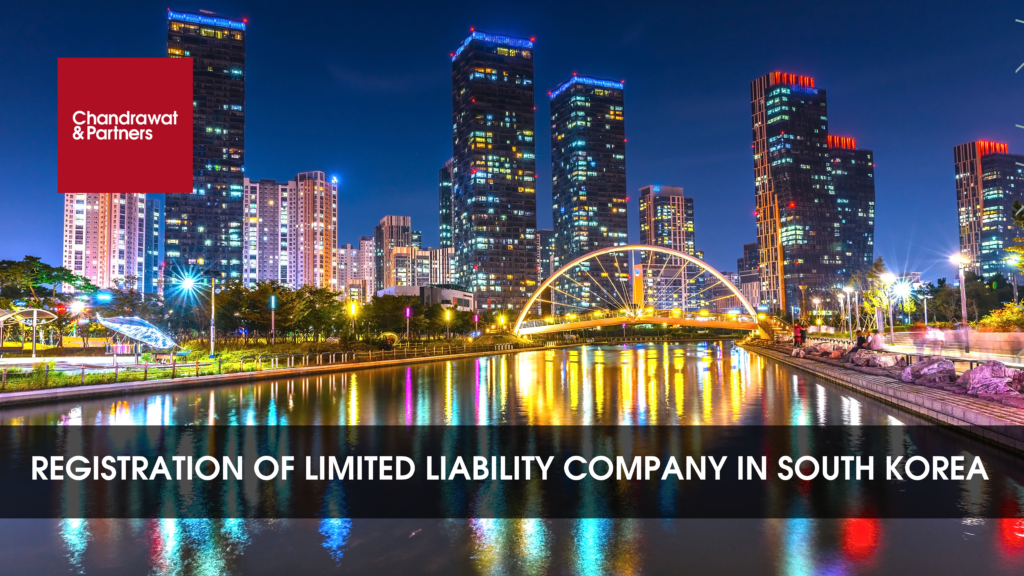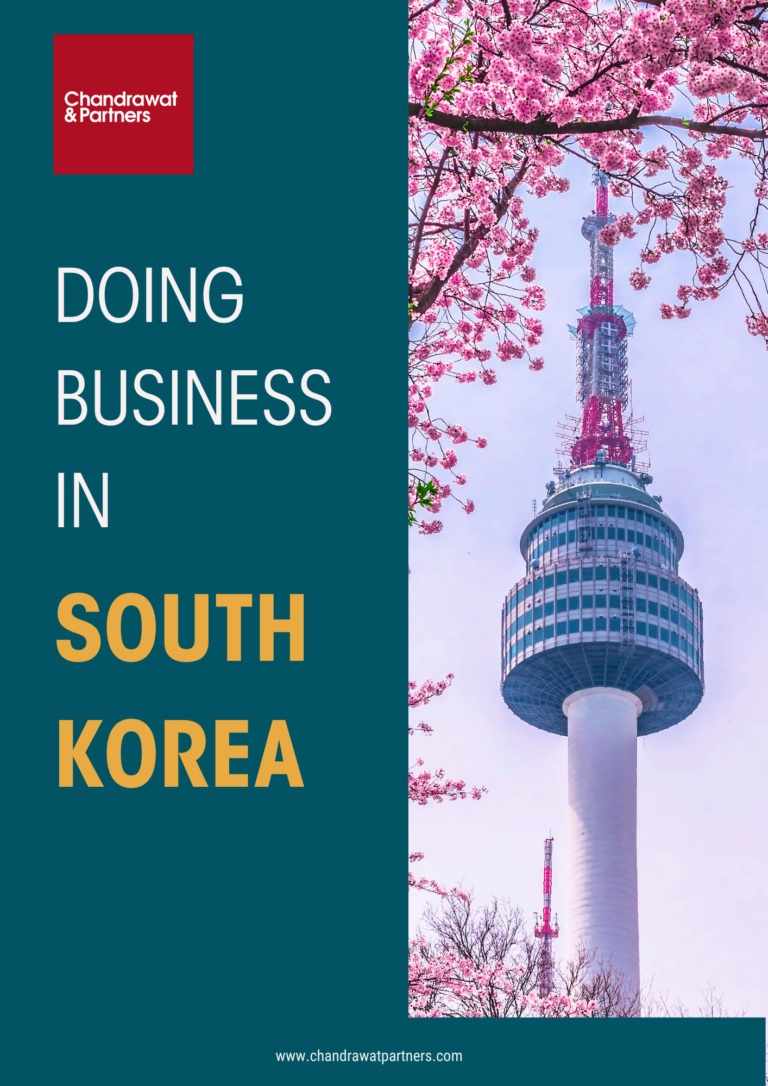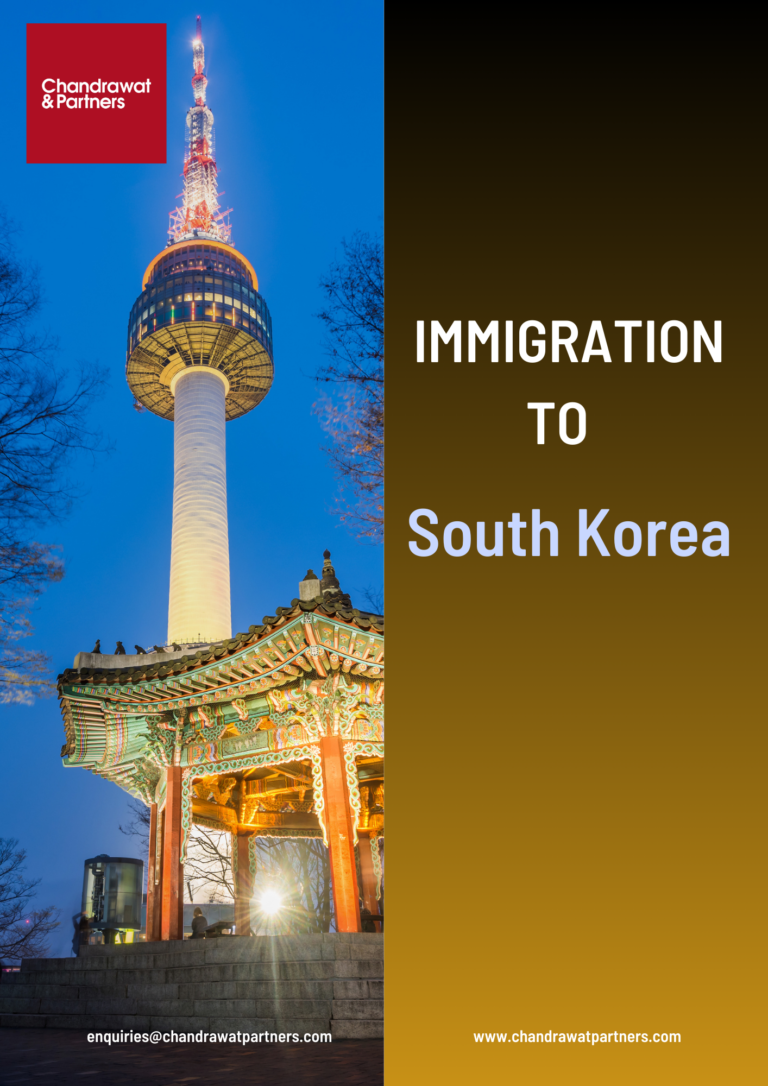South Korea
We have a team of professionals to help you with all your business needs. So, that you can focus on business expansion in South Korea.
WHY SOUTH KOREA ?
Situated in Eastern Asia, South Korea occupies the southern portion of the Korean peninsula. South Korea has an economic freedom score of 74, which make its economy the 24th freest economy in the world. South Korea started its economic climb by concentrating on straightforward industries with little value added, such as textile and plastics. A well trained educated labor force and high capacity for innovation have helped companies to capitalize the country’s participation in the global trading system. As per World Bank’s Ease of Doing Business rankings for 2021, South Korea ranked fifth out of 190 countries.
Though, South Korea is geographically a small country but it maintained its pace in the top 10 by making concerted efforts to open up their economy to foreign players therefore, it attracted many foreign investors to start a business in South Korea.

ADVANTAGES
South Korea’s education system and the establishment of a motivated and educated populace is largely responsible for spurring the country’s high technology boom and economic development. South Korea began to adapt an export-oriented economic strategy to fuel its economy.Though, South Korea is geographically a small country but it maintained its pace in the top 10 by making concerted efforts to open up their economy to foreign players therefore, it attracted many foreign investors to start a business in South Korea.
Great infrastructure
South Korea has modern and well maintained infrastructure that makes logistics a breeze. Country’s infrastructure quality has ranked high. The Korean government announced the new measures for maintaining safe, sustainable infrastructure, Social infrastructure spending would average 8 trillion South Korean Won (KRW) every year from 2020 to 2023.
Business opportunity in Korea
Being 12th largest economy worldwide and the fourth largest in Asia, South Korea is a dynamic and vibrant place to do business. Its strong domestic population is wealthy, savvy and out to buy the best.
Free trade agreements
South Korea has signed a free trade agreements with ASEAN,European Union, European Free Trade Association and other countries such as Australia, Canada, China, India, New Zealand etc. However, with the introduction of the EU South Korea Free Trade Agreement and a passion for UK goods, the country ranks in a favourable position among the most lucrative and exciting overseas markets for British companies, with numerous and varied opportunities for export.
Free trade agreements
South Korea is one of the most highly regarded countries in the world when it comes to sustained growth and development. Over the next five years, the South Korean economy is set to make the 10th largest contribution to world growth.
Advanced technology
South Korea is a world leader in electronics manufacturing, including semiconductor chips, flat screen TVs and mobile phones. World’s largest electronics companies are settled in South Korea. The country is a global pioneer in shipbuilding, steel and the automotive industries.
Double taxation agreements
South Korea has signed tax treaties with several countries to avoid double taxation and the prevention of fiscal evasion with respect to taxes on income.
SIMPLE TAX REGIME
In South Korea, following types of taxes are levied: income tax, corporate tax, and value added tax.
Income Tax

Residents of South Korea are taxed on their income, whether the income was earned in the country or abroad. Whereas, Non residents are taxed on the income received in South Korea only. Moreover, income tax is deducted at source, and you must file a tax return at the end of each year. Korean residents and citizens are liable to pay the tax at following rates:
- Income from 0 to 12,000 million South Korean Won (KRW) is liable to tax at rate of
6%; - Income from 12,000 to 46,000 million KRW is liable to tax at rate of 15%;
- Income from 46,000 to 88,000 million KRW is liable to tax at rate of 24%;
- Income from 88,000 to 150,000 million KRW is liable to tax at rate of 35%;
- Income from 150,000 to 300,000 million KRW is liable to tax at rate of 38%;
- Income from 300,000 million to 500,000 million KRW is liable to tax at rate of 40%;
- Income from 500,00 million to 1,000,000 million KRW is liable to tax at rate of 42%;
and - Income over 1,000,000 million KRW is liable to tax at a rate of 45%.
Corporate Tax
The corporate tax levied on foreign companies is based on the firm’s annual income generated by its permanent establishment. Moreover, a company is also taxable on the revenue generated by the transfer of its assets or profits. However, the tax rate varies as follows:
- Income from 0 to 200 million KRW is liable to tax at rate of 10%;
- From 200 million to 20 billion KRW is liable to tax at rate of 20%; and
- Over 20 billion KRW is liable to tax at rate of 22%.
However, certain companies such as farming and fishing cooperatives and investment companies may be exempted from corporate tax.
Value Added Tax (VAT)
The Value Added Tax is applied at a standard rate of 10%. However, export products are exempted from tax. There is also a special excise tax on products containing alcohol and tobacco, as well as on energy, transportation and automotive.
SOUTH KOREAN COMPANIES
Following types of business entities are available in South Korea:
General Partnership (Hampyeong Hoesa)
There is no minimum capital required to establish a partnership firm in South Korea. The liability for each partner is unlimited. In this kind of business entity, the transfer of ownership is limited as unanimous consent of all members is required before this can be accomplished.
Limited Liability Partnership (Hapja Hoesa)
In Limited Liability Partnership, owners can limit their liability only if they do not take part in the management of the company. Unlimited members have the power to carry out the affairs of the company while limited members participate in the company only through capital investment and do not have the power to carry out the affairs of the company.

Joint Stock Corporation (Chusik Hoesa)
In Joint Stock Company, stockholders have liabilities limited to the extent of their capital investment in the company. Stocks are freely transferable, though this can be subject to approval of the board of directors. This type of entities are required to hold shareholder meetings at least annually to discuss financial statements and dividends.
Limited Liability Corporation (Yuhan Hoesa)
This is the most common form of business entity used in South Korea. An LLC must assign at least one director and at least one shareholder. A minimum used share capital of €9,000 must be paid when incorporating an LLC in South Korea. LLC does not open shares to public sale on the stock market.
RELATED BLOGS
Contact Us
Get in touch with the right people to get the right help in setting up your business in South Korea.
enquiries@chandrawatpartners.com.
We have a team of professionals to help you with all your business needs. So, that you can focus on business expansion in South Korea.
Please feel free to email us on enquiries@chandrawatpartners.com
South Korea
Why South Korea?
Situated in Eastern Asia, South Korea occupies the southern portion of the Korean peninsula. South Korea has an economic freedom score of 74, which make its economy the 24th freest economy in the world. South Korea started its economic climb by concentrating on straightforward industries with little value added, such as textile and plastics. A well trained educated labor force and high capacity for innovation have helped companies to capitalize the country’s participation in the global trading system. As per World Bank’s Ease of Doing Business rankings for 2021, South Korea ranked fifth out of 190 countries.
Though, South Korea is geographically a small country but it maintained its pace in the top 10 by making concerted efforts to open up their economy to foreign players therefore, it attracted many foreign investors to start a business in South Korea.
Advantages
South Korea’s education system and the establishment of a motivated and educated populace is largely responsible for spurring the country’s high technology boom and economic development. South Korea began to adapt an export-oriented economic strategy to fuel its economy.Though, South Korea is geographically a small country but it maintained its pace in the top 10 by making concerted efforts to open up their economy to foreign players therefore, it attracted many foreign investors to start a business in South Korea.
Great infrastructure
South Korea has modern and well maintained infrastructure that makes logistics a breeze. Country’s infrastructure quality has ranked high. The Korean government announced the new measures for maintaining safe, sustainable infrastructure, Social infrastructure spending would average 8 trillion South Korean Won (KRW) every year from 2020 to 2023.
Business opportunity in Korea
Being 12th largest economy worldwide and the fourth largest in Asia, South Korea is a dynamic and vibrant place to do business. Its strong domestic population is wealthy, savvy and out to buy the best.
Free trade agreements
South Korea has signed a free trade agreements with ASEAN,European Union, European Free Trade Association and other countries such as Australia, Canada, China, India, New Zealand etc. However, with the introduction of the EU South Korea Free Trade Agreement and a passion for UK goods, the country ranks in a favourable position among the most lucrative and exciting overseas markets for British companies, with numerous and varied opportunities for export.
Growing economy
South Korea is one of the most highly regarded countries in the world when it comes to sustained growth and development. Over the next five years, the South Korean economy is set to make the 10th largest contribution to world growth.
Advanced technology
South Korea is a world leader in electronics manufacturing, including semiconductor chips, flat screen TVs and mobile phones. World’s largest electronics companies are settled in South Korea. The country is a global pioneer in shipbuilding, steel and the automotive industries.
Double taxation agreements
South Korea has signed tax treaties with several countries to avoid double taxation and the prevention of fiscal evasion with respect to taxes on income.
Simple Tax Regime
In South Korea, following types of taxes are levied: income tax, corporate tax, and value added tax.
Income Tax
Residents of South Korea are taxed on their income, whether the income was earned in the country or abroad. Whereas, Non residents are taxed on the income received in South Korea only. Moreover, income tax is deducted at source, and you must file a tax return at the end of each year. Korean residents and citizens are liable to pay the tax at following rates:
- Income from 0 to 12,000 million South Korean Won (KRW) is liable to tax at rate of
6%; - Income from 12,000 to 46,000 million KRW is liable to tax at rate of 15%;
- Income from 46,000 to 88,000 million KRW is liable to tax at rate of 24%;
- Income from 88,000 to 150,000 million KRW is liable to tax at rate of 35%;
- Income from 150,000 to 300,000 million KRW is liable to tax at rate of 38%;
- Income from 300,000 million to 500,000 million KRW is liable to tax at rate of 40%;
- Income from 500,00 million to 1,000,000 million KRW is liable to tax at rate of 42%;
and - Income over 1,000,000 million KRW is liable to tax at a rate of 45%.
Corporate Tax
The corporate tax levied on foreign companies is based on the firm’s annual income generated by its permanent establishment. Moreover, a company is also taxable on the revenue generated by the transfer of its assets or profits. However, the tax rate varies as follows:
- Income from 0 to 200 million KRW is liable to tax at rate of 10%;
- From 200 million to 20 billion KRW is liable to tax at rate of 20%; and
- Over 20 billion KRW is liable to tax at rate of 22%.
However, certain companies such as farming and fishing cooperatives and investment companies may be exempted from corporate tax.
Value Added Tax (VAT)
The Value Added Tax is applied at a standard rate of 10%. However, export products are exempted from tax. There is also a special excise tax on products containing alcohol and tobacco, as well as on energy, transportation and automotive.
South Korean Companies
Following types of business entities are available in South Korea:
General Partnership (Hampyeong Hoesa)
There is no minimum capital required to establish a partnership firm in South Korea. The liability for each partner is unlimited. In this kind of business entity, the transfer of ownership is limited as unanimous consent of all members is required before this can be accomplished.
Limited Liability Partnership (Hapja Hoesa)
In Limited Liability Partnership, owners can limit their liability only if they do not take part in the management of the company. Unlimited members have the power to carry out the affairs of the company while limited members participate in the company only through capital investment and do not have the power to carry out the affairs of the company.
Joint Stock Corporation (Chusik Hoesa)
In Joint Stock Company, stockholders have liabilities limited to the extent of their capital investment in the company. Stocks are freely transferable, though this can be subject to approval of the board of directors. This type of entities are required to hold shareholder meetings at least annually to discuss financial statements and dividends.
Limited Liability Corporation (Yuhan Hoesa)
This is the most common form of business entity used in South Korea. An LLC must assign at least one director and at least one shareholder. A minimum used share capital of €9,000 must be paid when incorporating an LLC in South Korea. LLC does not open shares to public sale on the stock market.
A well trained educated labor force and a high capacity for innovation have helped companies to capitalize the country’s participation in the global trading system. As per the World Bank’s Ease of Doing Business rankings for 2021, South Korea ranked fifth out of 190 countries in the world.
Author: Chandrawat & Partners
Topic: Doing Business in South Korea
Contact Us
Get in touch with the right people to get the right help in setting up your business in South Korea.
Contact us at: enquiries@chandrawatpartners.com

